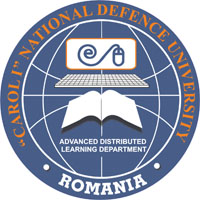ARE THE DL PRACTITIONERS PREPARED FOR ONLINE LEARNING?
ARE THE DL PRACTITIONERS PREPARED FOR ONLINE LEARNING?
Author(s): Michaela LogofătuSubject(s): Education
Published by: Carol I National Defence University Publishing House
Keywords: distance learning; online learning; rethinking education
Summary/Abstract: In Romania, the distance learning (DL) system is relatively a new system of education, officially implemented 16 years ago. This was a big step forward aiming to modernize the traditional education. The key issue was the legislation which defines this type of education and the quality standards that higher education institutions are obliged to fulfil. As a result, public and private Romanian universities have implemented DL study programs which are accredited by the ARACIS - the Romanian Agency for Quality Assurance in Higher Education. We would like to highlight that the diplomas obtained through DL study programs are equivalent with the diplomas obtained through traditional on-campus education. Nowadays, the world wide trends in education reveal a spectacular increase in online education. Are we afraid to promote the online education in Romania? Are we prepared, from pedagogical and technical point of view, to design, implement and manage the online system of education in Romania? The clear reply of the authors to this questions is: "YES, we the DL practitioners in DDLUB, we are well prepared for online learning!" In the first part of this article the author will synthesize her experience as DL practitioner within DDLUB - the Department for Distance Learning, University of Bucharest. The author will identify "lessons" that she has learned as managing director of this department, during the past 16 years. In the second part of the article, the author will assess the complexity of the transition from the current RO-DL system to a new system similar with online system (in Europe and USA). Also, such an initiative is correlated with strategic educational programs and with the CE's initiatives.
Journal: Conference proceedings of »eLearning and Software for Education« (eLSE)
- Issue Year: 11/2015
- Issue No: 02
- Page Range: 532-537
- Page Count: 6

